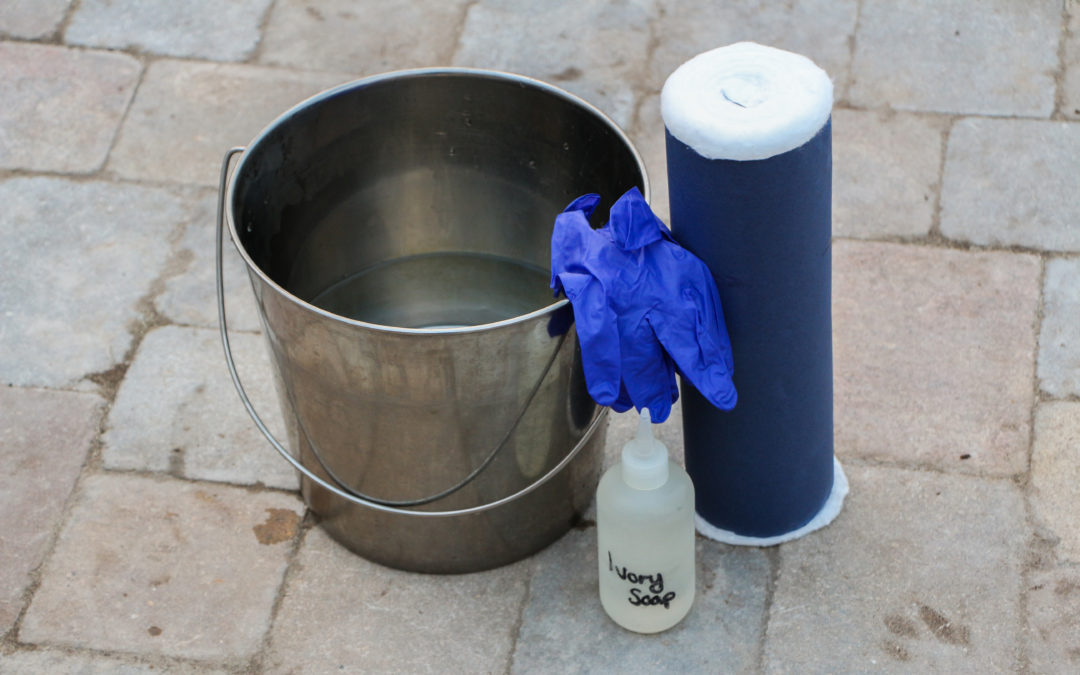If you have geldings and get dental work done on them regularly you will be used to this familiar question from your veterinarian: “Would you like his sheath cleaned today?”. While many owners have geldings that are patient enough to have their sheaths cleaned without any sedation, it can be difficult to clean and get a good look without assistance. Having your horse’s sheath cleaned and examined by your veterinarian annually will not only make your horse more comfortable, it can also allow the veterinarians to see potential issues early on before they become a much bigger problem.
As veterinarians, one of the most important reasons we advocate for annual sheath cleaning is to inspect the penis and sheath to look for cancerous lesions. Squamous Cell Carcinoma is the second most common equine tumor, and the penis and sheath are common areas for this type of cancer to be found. Older geldings and/or those with unpigmented genitalia, such as Appaloosas and Paints, are more likely to develop squamous cell carcinoma. Current research also indicates that excessive accumulation of smegma can also predispose to the development of cancerous lesions. Annual sheath cleanings performed by your veterinarian allows them to both A) Remove the buildup of potentially harmful smegma and B) Thoroughly inspect the sheath while your horse is relaxed and sedated. If your veterinarian does find a worrisome lesion, they can work with you on the best plan for your horse to ensure the tumor does not grow or spread. In general, squamous cell carcinomas are locally aggressive but slow to spread to other organs, meaning the sooner your veterinarian can find and treat the growth, the better the prognosis is for your horse.
Another reason to have your gelding’s sheath cleaned annually is to remove the “bean”; an accumulation of smegma in the urethral fossa at the end of the penis. For some horses this accumulation is small and not an issue, but in others it can be the size of a marble or larger, and become painful for your gelding and/or make it difficult for them to urinate. Many horses will be resentful of having the bean removed without proper restraint and sedation, which is another excellent reason to have it done by your veterinarian. Even after sheath cleaning and bean removal, some horses may begin to accumulate smegma as soon as a week post-cleaning. This is normal in a lot of horses, and a low level of smegma is helpful in that it acts as a lubricant and protective covering for the penis. The purpose of the cleaning and bean removal is to get rid of any excess that could cause an issue.
We love our geldings and want to make sure that they’re happy and healthy. Having your gelding’s sheath cleaned and looked over annually by your veterinarian is an important way to ensure that they are both comfortable and free from any potentially cancerous lesions. If you have any questions or notice anything on your horse’s sheath between annual cleanings, be sure to contact your veterinarian to discuss your concerns early-on before anything has time to progress.
(Written by Dr. Deanna Scheller while she was a 4th year ambulatory rotation student with us from the UW-Madison School of Veterinary Medicine. Thanks Dr. Deanna!)

